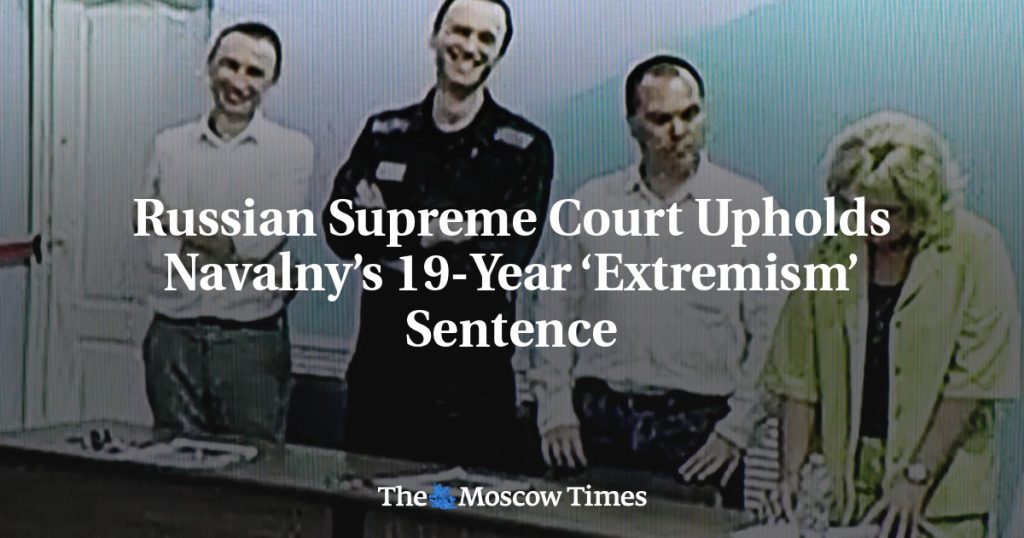Russia’s Supreme Court recently upheld a 19-year prison sentence for the late opposition activist Alexei Navalny, who died in an Arctic prison five months prior. The closed-door hearing on July 2 rejected an appeal by Navalny’s defense team against the sentence for creating an “extremist community.” This decision came after Navalny began serving his sentence in the notorious “Polar Wolf” penal colony and passed away under unclear circumstances on February 16. The verdict of the Moscow City Court remained unchanged, indicating an ongoing effort to keep Navalny out of political activities permanently.
In addition to Navalny, the Supreme Court also ruled against an appeal by Daniel Kholodny, the former technical director of Navalny’s YouTube channel, who was sentenced to eight years in a penal colony in the same “extremism” trial. Russia had designated Navalny’s activist network, including the disbanded Anti-Corruption Foundation (FBK), as “extremist” in 2021, leading to criminal prosecution threats against employees, volunteers, and supporters. Following this designation, most of Navalny’s associates fled the country, while those who remained faced lengthy prison sentences.
Authorities in Russia have continued to target Navalny allies who chose to stay in the country, handing down substantial prison terms to individuals associated with Navalny. In May, a Siberian court upheld a nine-year prison sentence for Ksenia Fadeyeva, a former coordinator for Navalny in the Tomsk region. Similarly, Lilia Chanysheva, another Navalny coordinator in the Republic of Bashkortostan, was sentenced in April to nine-and-a-half years on “extremism” charges. These cases highlight the ongoing crackdown against individuals connected to Navalny and his activism in Russia.
The decision by Russia’s Supreme Court to uphold Navalny’s prison sentence comes amidst ongoing concerns about the state of human rights and political freedoms in the country. Navalny’s supporters and international observers have criticized the charges against him as politically motivated and aimed at silencing dissent. The Supreme Court’s ruling signals a continuation of the government’s efforts to suppress opposition voices and maintain control over political discourse in Russia.
While Navalny’s death in custody sparked outrage and calls for an independent investigation into the circumstances of his passing, the Supreme Court’s decision to uphold his sentence without granting an appeal indicates a lack of accountability and transparency in the Russian judicial system. The legal proceedings surrounding Navalny’s case are seen as further evidence of the government’s crackdown on dissent and the erosion of democratic norms in the country.
Despite the challenges faced by Navalny’s allies and supporters in Russia, the opposition movement continues to persevere through alternative means of activism and advocacy. International pressure and support for Navalny and his cause remain strong, with calls for justice and accountability reverberating around the world. As the Russian government intensifies its crackdown on dissent, the resilience of those who refuse to be silenced serves as a reminder of the ongoing struggle for human rights and democracy in the country.















